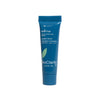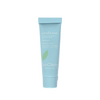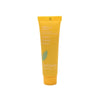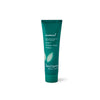Vitamin A for Acne
By Abby Vinas
Acne Treatment
•
0 Comments

We’ve all heard the miraculous claims: “Vitamin A changed my skin forever!” or “Increasing your vitamin A intake can cure your acne woes”. Enticing promises, to be sure, but are they true?
It turns out these promises aren’t all they’re cracked up to be, but vitamin A still has its place in the battle for clear skin. So how are vitamin A and acne treatment connected?
What’s in Vitamin A?
Not all types of vitamin A are created equal and it’s important to understand the distinction between two main types—carotenoids and retinoids.
Carotenoids
If you immediately reached for the carrots when you were told to get more vitamin A in your diet, then you’re thinking of carotenoids. These yellow-orange plant pigments are found in green and yellow veggies, and you may have heard of this type of vitamin A referred to as beta-carotene.
There are more than 600 types of carotenoids, but only a small portion of these can be used by the body. However, 33 percent of all vitamin A intake in the average American diet comes from the carotenoids found in our food.
Retinoids
Retinoids, also known as preformed vitamin A, are generally found in animal products, including eggs, dairy, meat, and other common food items.
Retinoids are the types of Vitamin A that are biologically active, as the body doesn’t need to convert it into something usable—it’s set and ready to go. You may also hear retinoid referred to as retinol, and this type of vitamin A is what’s found in many acne products.
Health Benefits of Vitamin A
Vitamin A is an important fat-soluble nutrient that plays a role in many of the body’s vital processes, including cell growth, bone development, immune system function, and reproduction—just to name a few. Here’s a quick rundown of just a few of the amazing health benefits associated with this vitamin.
- Aids in Vision: You’ve likely heard that vitamin A is responsible for vision processes, and this might explain why you’ve been told to eat carrots to improve eyesight—these orange veggies contain carotenoids. It actually protects the eye and plays a role in protecting against macular degeneration, which is the leading cause of age-related blindness.
- Boosts the Immune System: Vitamin A has a reputation for its immune-boosting abilities. It regulates genes that signal immune responses, and beta-carotene has been noted for its powerful antioxidant effects in combating a variety of illnesses.
- Reduces Inflammation: Vitamin A has antioxidant properties that help neutralize free radicals that may cause cellular damage. It prevents these cells from becoming overactive, and can help calm inflammation.
Can You Have Too Much?
While vitamin A can have serious benefits for your health, including clear skin, too much of a good thing can actually cause you harm. The growth of acne from eating unhealthy foods in not uncommon. While vitamin A does not cause acne, excessive amounts of the vitamin can exacerbate certain conditions.
Significant excesses of preformed vitamin A can result in Hypervitaminosis A. This scary sounding condition is basically a toxicity that can cause a host of negative health effects, including blurred vision, changes in appetite, drowsiness, headache, irritability, and liver damage. These consequences are just the tip of the iceberg, with effects ranging from skin irritation to heart valve calcification.
It’s important to note that this excess is only in reference to preformed vitamin A, which is found in dairy products, poultry, fish, and meat, and its synthetic versions, which are found in certain medications, namely, those oral medications designed to treat acne.
So How Much Vitamin A Should I Have?
It’s safe to say vitamin A is essential for a healthy body and mind, not to mention your skin, but what should you be doing to get more in your diet? While there are always healthy skin tips to follow, in the case of vitamin A intake, you’re probably already getting all the vitamin A you need.
Vitamin A deficiency is very rare in the United States. In fact, the U.S. recommended dietary allowance of Vitamin A in adults is 3,000 IU for men and 2,300 IU for women, but these are generally low numbers. Some health experts recommend 5,000 IU of vitamin A, which is easily attainable through a healthy diet rich with vegetables and certain sources of preformed vitamin A, namely meats and dairy products.
Eat as many vitamin A-rich foods as you want, but be wary when taking vitamin A supplements for acne, as too much can result in some serious health consequences.
Why is Vitamin A Important for the Skin?
Now that we’ve covered the ins and outs of Vitamin A, let’s get to the good stuff. Just how does this vitamin lead to clear skin?
Vitamin A is a powerful antioxidant that helps combat free radicals. Free radicals can cause oxidative stress, which can change the environment of your sebaceous glands (those glands under the skin that produce oil), which can make it easier for P. acnes bacteria to collect and form blemishes.
Genetics, stress, medications, and certain types of food can all be causes of oily skin. Vitamin A helps acne by reducing the amount of sebum your skin produces, meaning it can be a wonderful option for anyone who deals with oily and combination skin—both skin types that are prone to acne breakouts.
Forms of Vitamin A
Many drugs used for treating acne in young adults utilize vitamin A as their active ingredient, including tretinoin, more commonly known as Retin-A, and isotretinoin, commonly known as Accutane.
These medications use synthetic forms of vitamin A to help stimulate rapid cell growth within the skin by activing genes that cause skin cells to mature. The most important of these cells are known as keratinocytes, which make up a whopping 95 percent of the outer layer of the skin, also known as the epidermis.
Keratinocytes help hold all of our blood vessels and nerves in place and serve as a protective barrier for our insides from the damages of the exterior world.
As these new cells rise to the surface, the skin over your pores opens up. They help prevent dead skin cells from cumulating on the surface of the skin and prevent clogging inside the pores. Vitamin A has also been purported to promote collagen production, which can leave your skin feeling smooth and decrease the appearance of wrinkles and lines.
Vitamin A that comes from your food, especially the carotenoids found in vegetables stimulates less growth than the synthetic retinoid medications offered for acne treatment.
However, the retinol used in brands like Accutane and Retin-A can actually cause the skin cells to regenerate so quickly that the skin over cysts and nodules opens up, allowing these blemishes to rise to the surface. Because of this, overuse of these supplements for acne can actually result in harsh irritation that causes inflamed, red skin.

Skin Benefits of Vitamin A
- Fights against free radicals, which combats accumulation of acne bacteria
- Promotes skin cell growth to reveal new, smooth, healthy skin
- Repairs the epidermis to protect against UV rays
- Helps the skin stay moist and supple, promoting a smooth appearance
- May help in the production of collagen, reducing the appearance of fine lines and wrinkles
Which Kind of Vitamin A is in Skin Care Products?
Numerous skin care products tout the benefits of vitamin A for acne in their formulas, but many of these ingredients actually can’t be used by the skin. Here’s just a couple of the kinds of vitamin A you might find in common skin care products.
Retinol
Retinol is one of the most common vitamin A ingredients in skin care products, and it’s a soluble form that can be transported easily through the bloodstream. However, it breaks down quickly when exposed to oxygen and loses its effectiveness in products that are repeatedly exposed to the air.
Pro-Retinol
Many skin care products contain “Pro-Retinol”, which is the commercial term for what is called retinyl acetate. The skin can easily convert this ingredient into usable vitamin A, but much of the product is not absorbed or used by the skin.
Retinoic acid
Buyers beware. If you see a skin care product that lists retinoic acid as an ingredient, you’re getting scammed. This is the form of vitamin A your body can actually use, as it binds to receptor sites to signal your genes. However, this type of vitamin A can only be formed at the cellular level.
The Bottom Line
Vitamin A is just one piece of the puzzle when it comes to fighting acne. While it is true that vitamin A is good for acne in healthy dosages, other vitamins have played a large role in acne treatment as well.
Can Vitamin D keep skin clear? The answer to these questions is the same. While acne treatment medications and skin care products often claim the miraculous benefits of these vitamins, they're not a cure-all for your skin woes. However, it’s an important piece that everyone who cares about their skin health should take advantage of.
The medicinal form of vitamin A has been proven to result in scary side effects, and products containing this ingredient often don’t do as promised. However, when it comes to diet, making sure you get enough vitamin A in your body is important. Health experts recommend a diet filled with beta-carotene rich vegetables and fruits and whole foods.
When it comes to gleaning health benefits from taking vitamin A for acne, it’s best to get it from natural sources like food. Avoid supplements and be careful with skin care products that utilize harsh percentages of this ingredient. Instead, stick to topical treatments that are designed for combating acne bacteria and treating and preventing acne scarring with acne solutions like BioClarity.
Clearer skin in as little as two weeks.
This 3-step routine combines the most effective (clinically-proven) acne fighting ingredients with powerful plant intelligence to leave your skin nourished, refreshed, and clear.
Try Some
Here are some additional acne treatment resources you may find interesting:

Abby Vinas
Abby Vinas has long been an active member of the holistic health community, advocating in favor of its benefits to both our physical and emotional well-being. Her commitment to leading a healthy lifestyle has made her an authority on self-care practices. Abby is passionate about fitness, nutrition, and proper skincare, and is also an avid lover of avocado toast and dog-petting.












